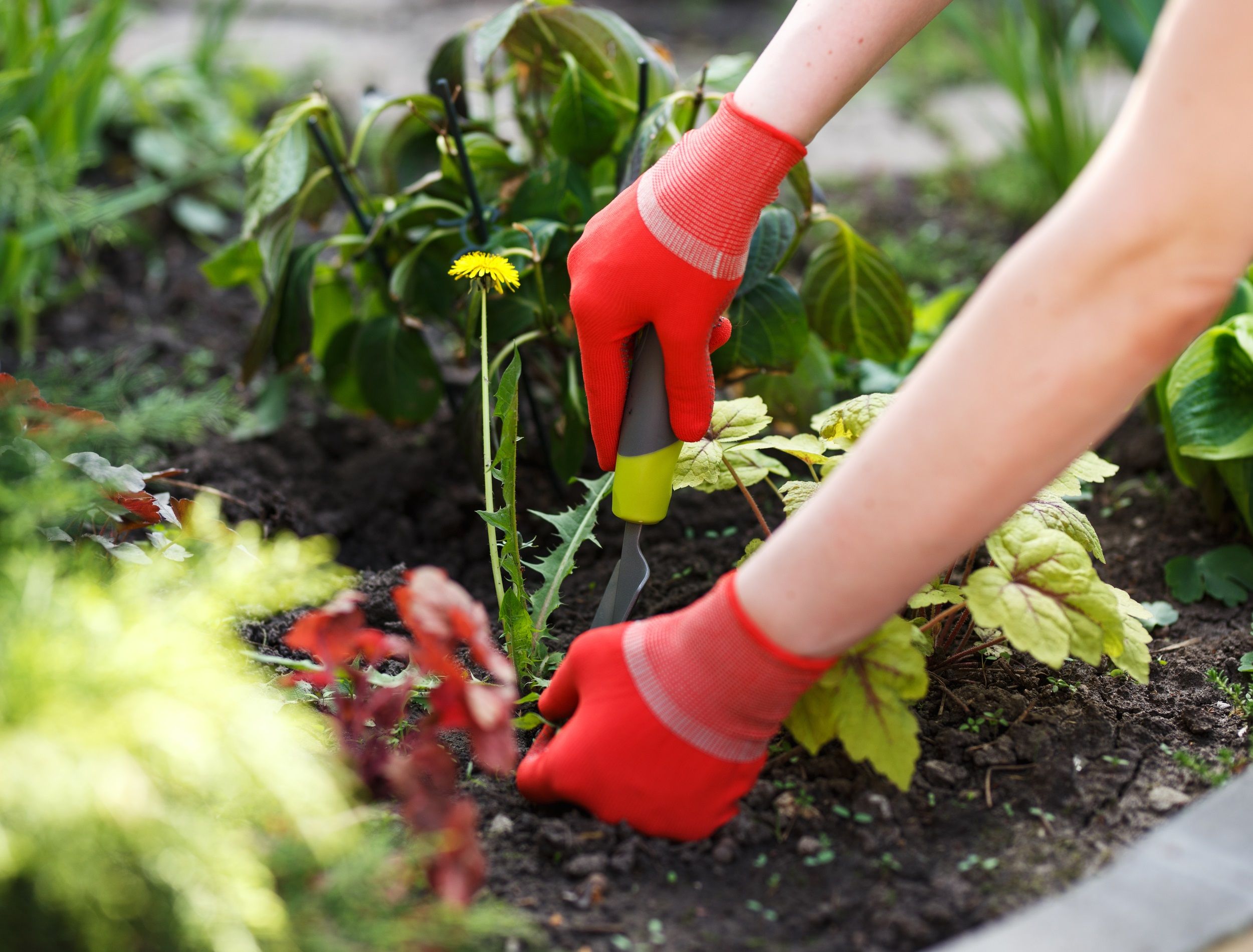Weeds have a big enough impact on your garden, so why add harsh chemicals into the mix? Common herbicides such as Roundup tend to harm the soil quality, air, and water, but they can also kill and weaken your crops. While natural and DIY alternatives may take a bit more persistence, they're better for the environment and your garden overall.
Below, you'll learn about the problem with Roundup, four ways you can get rid of weeds naturally, and even preventative measures you can take to save yourself (and your garden) a little heartache.
What's the Deal with Roundup?
Image credits: fbxx via Canva
Roundup is a broad-spectrum systemic glyphosate-based herbicide that kills any plants it comes in contact with. Glyphosate is the active ingredient, and many crops, such as corn and soybeans, are genetically bred to be resistant to mass production on farms.
Since using Roundup on your lawn or garden can kill your plants and turf, it's not exactly the optimal choice for killing weeds. It can also contaminate the soil, making it difficult to grow crops and flowers in the future. That's why it's best to use this chemical as little as possible.
Rid of Weeds Without Roundup
Image credits: Kostenko Maxim via Shutterstock
Here are four different weeding techniques you can use to avoid that pesky chemical:
Weed by Hand
Weeding by hand will require a little sweat and hard work, but it's one of the most effective ways to clear your garden. To remove weeds by hand put on a pair of gardening gloves and grab a trowel or hoe. Dig around the weed and pull it gently, removing the entire root system.
Think of hand-weeding as a regular garden chore. Stay consistent, weeding regularly to remove weeds before they flower and drop seeds. Keep an eye out every time you water or care for your garden so you can deal with the weeds as soon as they pop up. It will help you avoid overgrown weeds.
Flame Weeding
Flame weeding is an efficient method for removing mature and immature weeds. The flame weeder tool, powered by propane or another heat source, essentially operates as a large lighter by heating the plant's cell barrier and killing it and its root system.
Flame weeding is a great way to kill isolated weeds, including those found in cracks on driveways or gravel. However, make sure to keep the tool away from the luscious blooms in your garden!
DIY Methods
There are many DIY methods to choose from, many of which are just as effective as Roundup. For one, you can sprinkle baking soda on the weeds, followed by a splash of water. The salt wilt dries out your weeds, though baking soda will benefit your garden by preventing issues such as powdery mildew.
You can also try out soap mixtures, whether you opt to mix in water, vodka, or vinegar. Another option is to pour boiling water on the weeds, burning them and killing the root system. These DIY solutions will help you avoid harming your plants.
Solarizing Weeds
Using the sun to kill weeds is a simple and effective process. All you need is a clear plastic tarp and a few heavy rocks to weigh it down. You can also use an opaque tarp, though this process is called occultation and takes a little longer.
Place the tarp over the affected area, blocking the weeds from access to water and heating the soil. The plastic will trap heat and moisture, encouraging germination. Once the weed seeds germinate, the excess heat will kill them.
Any plants or turf under the plastic will die, so it's best used as a last resort or if you're looking to start fresh. The process also reduces pathogen populations in the soil, making the area an excellent spot for new plants.
Preventing Weeds
Image credits: ronstik via Canva
Planning is always the best way to protect your garden. So while you should stay on top of weeds with the natural weed removal options, you will also benefit from preventing them!
Mulch inhibits the growth of weeds by blocking sunlight from reaching the soil. Thanks to mulching, weeds won't have the light they need to germinate and grow. You can include a layer of straw, wood chips, newspaper, or other organic matter. The mulch also has added benefits for your garden, such as maintaining the soil's moisture and providing nutrients as it degrades.
You can also use safe, pre-emergent herbicides. These products will kill the seeds of weeds by creating a chemical layer at the top of the soil, stopping them from germinating and invading your garden. You can use them for issues such as crabgrass.
Planting competition, whether groundcover, veggies, or flowers nearby, will also limit the amount of light on the soil, preventing weeds from developing.
Get Gardening!
Roundup doesn't just negatively affect plants you currently grow. It can also impact your health or damage the soil quality, affecting future crops. Fortunately, there are several natural alternatives and preventative measures you can take.
Getting rid of weeds without using harsh chemicals is possible, and it only requires time, patience, and a few tools you likely already have in your collection.
Do you have any tips for getting rid of weeds without Roundup? Share in the comments below!




